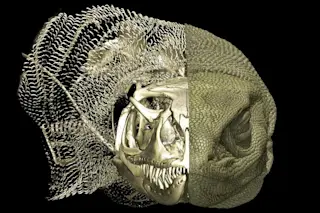For many years, Gallup has been asking the same survey question about belief in evolution. And it has been consistently finding that an alarming percentage of the public (more than 40 %) believes that "God created human beings pretty much in their present form within the last 10,000 years or so." Technically speaking, this is young-Earth creationism. (The other two choices in the poll are a type of God-guided evolution and an atheistic or non-guided evolution. I would argue that both are pro-evolution responses.) Anyway, we now have new Gallup results, and while it shouldn't be over-emphasized, it's starting to look like there's some slight movement. The young Earthers are now at just 40 %; they'd been as high as 47 % at various points in the 1990s. Meanwhile, the non-guided evolution camp has gone up to 16 % (from as low as 9 % in the 1990s). Here's an ...
The Evolution Polling Numbers Have *Nudged* A Little
New Gallup survey results reveal changing belief in evolution, signaling a rise in acceptance and a decline in young-Earth creationism.
More on Discover
Stay Curious
SubscribeTo The Magazine
Save up to 40% off the cover price when you subscribe to Discover magazine.
Subscribe












